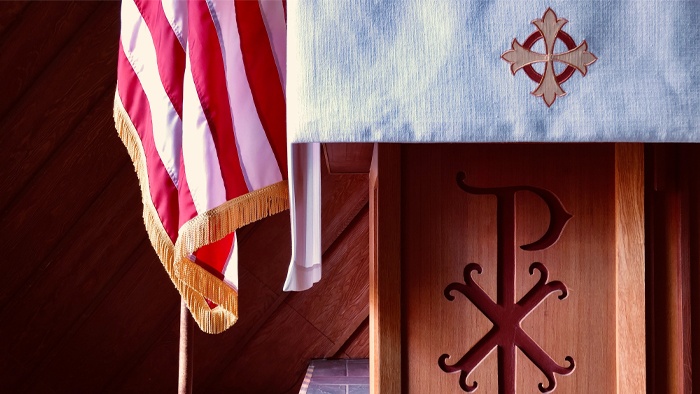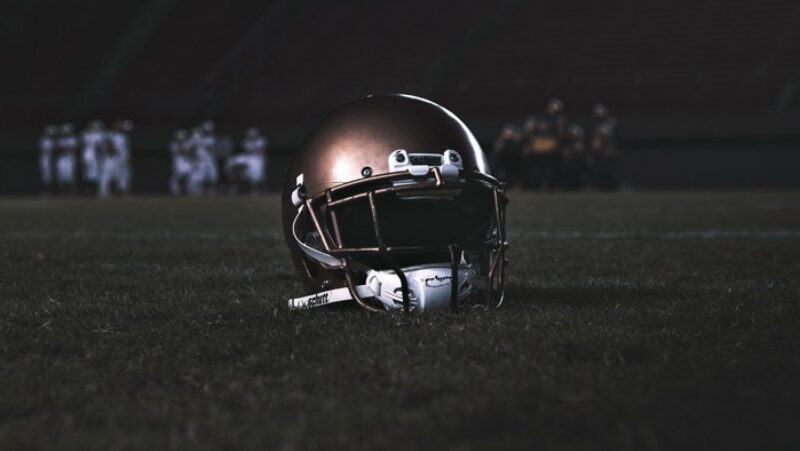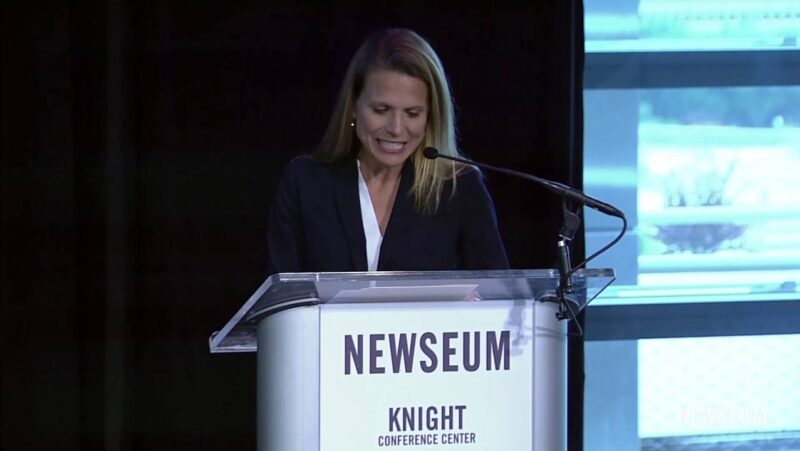Is America a Christian Nation?

Is America a Christian nation? Should it be? What does it even mean for a country to be a Christian nation, or a nation of any other religion? These were among the questions Pastor Jim Eaton of Mosaic Church in Frederick, Md., and I discussed for the National Day of Dialogue.
The conversation recalled the Jan. 6 riot at the U.S. Capitol. Among the throngs of protestors that day were those who erected large crosses and other Christian symbols. It was their way of saying that America had to be reclaimed for its true, Christian owners. America, to them, was originally Christian (and white) and had to stay that way.
Is America a Christian nation? Discussing the concept — or myth
The narrative erases multiple truths, as Pastor Eaton and I discussed. Native American religious practices existed long before America’s founding and continue to form an important part of who and what America is today. Enslaved Muslims, too, were present at the founding, and while the fact of slavery made them invisible to the founders, it remains true that Islam in America isn’t as “new” as many Americans assume it to be. And the founders themselves had beliefs that existed across a spectrum, some barely approximating what Christian nationalists today would call “Christianity.”
“The lived experience of faith is one that involves change, growth, evolution over time. Political religion allows none of this.”
Still, the Christian nation concept — or myth — is compelling for many Americans, and not always for malicious reasons. The country’s fast-changing racial and religious demographics have made many white Christians anxious about their place in America. Some — like a portion of those present on Jan. 6 — want to reclaim Christianity as a politically dominant force. Many others are simply trying to carve out a space for themselves in a nation that suddenly feels foreign to them.
Pastor Eaton and I navigated those differences carefully, pointing out that “Christian nationalists” certainly exist, but the term can also be used overbroadly to describe Christians who are motivated for religious or spiritual reasons rather than political ones.
Even religious minorities like myself have long assumed that the U.S. is a Christian nation, just not in the same way a nationalist would think of it. For us, “Christian nation” denotes a country where Christians form a majority, and the public arena is awash with Christian symbols. A copy of the Gideon Bible in your hotel room, days off for Christian holidays and public Christmas festivities that make every kid, of every religion, want to celebrate, too. The First Amendment protects the robust practice of religion in the public space.
RELATED: Why is Christmas a federal holiday?
So, there are many ways of interpreting “Christian nation,” but the version that we must worry about, and that the First Amendment’s establishment clause is designed to protect against, is when the government has control of Christianity and uses it for its own ends.
Establishment clause: “Congress shall make no law respecting an establishment of religion …”
Free exercise clause: “… or prohibiting the free exercise thereof …”
Such a use of religion is not unheard of. Several countries, including my parents’ birth country, Pakistan, and Pastor Eaton’s childhood home of Bangladesh, merge church and state. The deleterious effects are evident. Blasphemy laws are used by the state and private citizens alike to punish others for their dissenting views. When the government controls a religion, it decides which version is the right version, and anyone who espouses a different view is a threat that must be quashed.
The merger of church and state hurts the church (or religion) in this and many other ways. It robs it of its authenticity and transforms it into a political tool to be used and abused by the state for its own ends. The lived experience of faith is one that involves change, growth, evolution over time. Political religion allows none of this.
The First Amendment’s establishment clause today works to prevent these pitfalls of an established church. Religious liberty scholars and lawyers debate its contours, but they all appreciate its role in preventing the political dominance of a single religion.
Americans are deeply divided about the relationship between church and state, but overwhelmingly believe the First Amendment is vital, the Freedom Forum found in its “The First Amendment: Where America Stands” survey.
Asma T. Uddin is senior fellow for religious liberty at the Freedom Forum.
Perspective: Public Schools Need Constitutional and Religious Literacy
Watch: Rise Up: LGBTQ Rights and Religious Freedom
Related Content
2025 Al Neuharth Free Spirit and Journalism Conference
All-Expenses-Paid Trip To Washington, D.C.
June 22-27, 2025
Skill-Building
Network Growing
Head Start On Your Future

